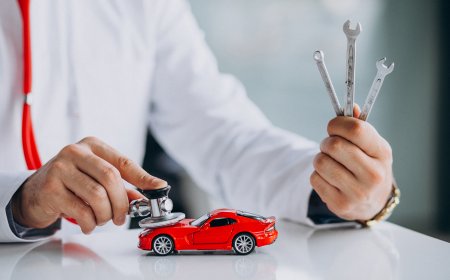How to Take Care of a Labrador Retriever: Complete Guide
how to take care of a Labrador Retriever with this complete and simple guide. Covers feeding, grooming, training, exercise, health, and more

The Labrador Retriever is one of the most popular dogs in the United States. Labradors are known for their friendly nature, energy, and love for people. They are great with families, children, and even other pets. If you have a Labrador Retriever or plan to get one, it is important to know how to care for them in the right way. This guide explains everything you need to know in simple steps, so your Labrador stays healthy and happy.
Taking care of a Labrador means paying attention to their food, exercise, grooming, training, health, and emotional needs. They are smart dogs and need both physical and mental activity. Labradors can live for 10 to 14 years if they are well cared for. Each part of their care is important and should be followed daily, weekly, or monthly.
Feeding your Labrador is the first step in good care. Labradors love to eat, and they can gain weight easily. Choose high-quality dog food with meat as the first ingredient. You can give dry food (kibble), wet food, or a mix of both. Puppies need to eat three times a day, while adult Labradors should eat twice a day. Always measure the food to avoid giving too much. Ask your vet how much to feed your dog based on age, weight, and activity level. You should also give your Labrador clean drinking water all day.
Labradors are active dogs. They need regular exercise to stay healthy and avoid behavior problems. Adult Labradors should get at least one hour of exercise every day. This can include walking, running, playing fetch, or swimming. Labradors love water, and swimming is a great way for them to stay fit. Puppies need playtime but should not be forced to exercise too hard, as their bones are still growing. If a Labrador does not get enough exercise, they may become bored and chew on things or bark too much.
Grooming is also part of caring for your Labrador. Labradors have a short, thick coat that sheds all year, with heavier shedding in spring and fall. Brush your Labrador two to three times a week to remove loose hair. During shedding season, you may need to brush them every day. Use a slicker brush or a deshedding tool for best results. Labradors do not need frequent baths. One bath every two to three months is usually enough, unless they get very dirty. Use a dog shampoo to protect their skin. Clean your Labradors ears once a week, as they can get ear infections. Wipe their ears gently with a vet-approved ear cleaner. Trim their nails once a month and brush their teeth two to three times a week.
Training your Labrador is important from the start. Labradors are smart and want to please their owners, which makes them easy to train. Start with basic commands like sit, stay, come, and leave it. Use positive rewards like treats, praise, or toys. Be kind and patient. Never shout or hit your dog. Socialize your Labrador early by introducing them to new people, dogs, and places. This helps them become calm and confident. If you need help, you can take your Labrador to a training class. You can find classes and training tips at AKC Training Resources.
Health care is another part of looking after a Labrador Retriever. Labradors should go to the vet at least once a year for a check-up. Puppies may need to visit the vet more often for shots and health checks. Make sure your Labrador gets all their vaccines, including rabies, parvo, and distemper. Your vet may also recommend protection against fleas, ticks, and heartworms. Labradors can have health problems like hip dysplasia, elbow dysplasia, and eye diseases. They may also get overweight, so it is important to keep them at a healthy weight. If you notice anything strange like limping, scratching, or loss of appetite, take your Labrador to the vet. You can learn more about Labrador health at AKC Labrador Health.
Labradors are social and loving. They do not like being alone for long hours. They enjoy spending time with family, playing, and being part of daily life. If you leave your Labrador alone for too long, they may become sad or anxious. To prevent this, give your Labrador toys to play with when you are away. Puzzle toys or treat-dispensing toys are good choices. Try to spend time with your Labrador every day, even if it is just relaxing together in the evening.
Labradors do well in homes with space to move around, but they can also live in apartments if they get enough daily exercise. Make sure your home is safe. Keep harmful items out of reach, such as chocolate, grapes, cleaning products, or small objects they can swallow. If your Labrador goes outside, keep them in a secure area like a fenced yard. When walking, always use a leash. Labradors are friendly and curious, and they may run off to greet people or chase animals.
If you have children, Labradors are one of the best dogs to have. They are gentle, patient, and playful. Always teach children how to be kind and respectful with dogs. Supervise young kids when they play with the dog to keep everyone safe. Labradors also do well with other pets, especially if raised together. Early training and social time can help with this.
Labrador puppies need special care. When you first bring a puppy home, give them a safe space like a crate or a soft bed. Puppies need to go potty often, so start potty training early. Take them outside after eating, sleeping, or playing. Praise them when they go in the right spot. Crate training can help keep your puppy safe and help them learn to hold their bladder. Puppies will chew, so give them chew toys to protect your furniture. Never give cooked bones, as they can break and hurt your dogs mouth or stomach.
As your Labrador grows older, their needs may change. Older dogs may not run as much but still enjoy short walks and playtime. Keep feeding them the right food for their age. Senior dog food has fewer calories and more joint support. Older Labradors can get stiff joints or slower movement, so you may need to add a soft bed or ramps around the house. Your vet can also suggest supplements like glucosamine for joint health.
Its also a good idea to get your Labrador microchipped and keep their ID tag updated. A collar with your phone number can help if they get lost. Many shelters and vets scan for microchips and can contact you if someone finds your dog.
Some people choose to adopt a Labrador from a shelter or rescue group. This can be a good choice and helps a dog in need. Many rescue Labradors are already trained and just need a loving home. You can find adoption groups through Labrador Retriever Rescue or Petfinder.
If you want to learn more about Labrador Retrievers and how to care for them, the American Kennel Club (AKC) has many helpful articles. You can visit AKC Labrador Info for more.
Labradors are happy, active, and loving dogs. They enjoy being part of the family and giving love. In return, they need time, care, and attention. If you give your Labrador what they need, they will be your loyal friend for many years. Taking care of a Labrador Retriever is a daily job, but it brings great joy and many fun moments. Whether you are walking in the park, playing fetch, or sitting on the couch, your Labrador will always be happy to be by your side.

































